Analytics
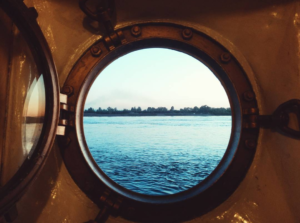
Life on a vessel: an overview of the cabins
A seaman’s work and life at sea is limited by the size of the vessel. And the cabin is the place where you have to live for several months in a row. The psyche of the sailor and, in many respects, the success of the voyage itself depends on how the cabin is arranged. It is good if the vessel is designed to a high standard, with large living quarters, seating areas and comfortable living conditions. However, there are a lot of vessels with small cabins, shared toilets and showers, where there are no additional amenities, for example, saunas, gyms, etc. What kind of seafarers’ cabins should be by standards and how are the things with living quarters on vessels in reality – in a review from USM.
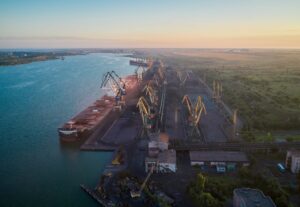
More than 60 million tons of cargo were transshipped through Ukrainian ports in six months
Cargo turnover in the seaports of Ukraine for six months has reached 66.1 million tons of cargo, which is 13.2 million tons (or 16.7%) less than in the same period last year.
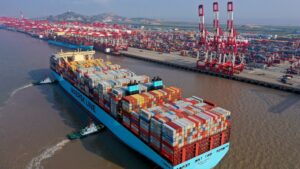
Record freight rates: what is the world preparing for?
Freight rates are breaking all records: at the end of June, six-digit numbers were requested for container vessels with a capacity of 2.8 thousand to 5 thousand TEU. USM figured out what caused the rise in freight rates, why they will not drop in the near future, and what consumers can expect.
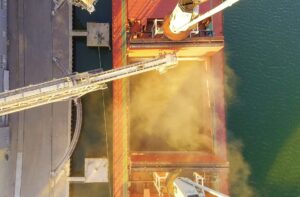
Exporters, competitors and a record harvest of Ukraine’s: outlooks in the new season
Barva Invest together with USM assessed the current situation on the grain market in the European region and analyzed who might be interested in Ukrainian grain and who might compete with us for exporters.
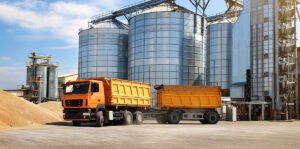
Ports and roads in Ukraine: a complex equation with many unknowns
The problem with the highways that lead to the ports of Kherson, Mykolaiv and Mariupol is far from new, but still very urgent. Heavy-duty transport follows city streets to these ports, demolishing roads and causing great inconvenience to local residents.
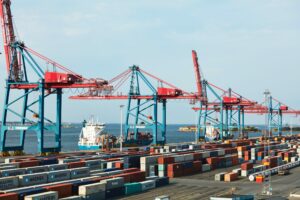
COVID-19 in the ports of China again: what should Ukraine prepare for?
Today, more than 300 container vessels stand by at the approaches to ports around the world. The reason is in the supply chain disruptions caused by the coronavirus pandemic, in particular in southern China. USM has spoke with the Ukrainian representatives of ZIM, CMA CGM and Maersk to find out how this will affect our country.
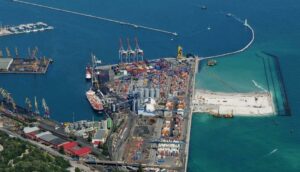
An electronic customs logbook is being tested in the port of Odesa
The State Customs Service is switching to a test mode of using the “Electronic Logbook of the Checkpoint of Sea Communication”.
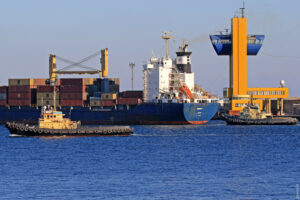
Odesa tugs: a new round of the tariff war
The towing blitzkrieg continues in the Odesa seaport: towing companies offering unprecedented discounts to agents and ship owners. On the one hand, they are trying to attract new customers, and on the other, they are trying to keep existing ones. USM decided to show the chronology of the drop in tariffs and reflect on what really stands behind such decisions of towers.
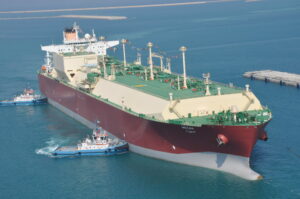
Seafarers` salaries: how much are Ukrainian specialists paid?
Despite the ongoing crisis with the change of crews of the merchant fleet, Ukrainian sailors remain one of the most demanded specialists in the field of maritime shipping. USM found out which levels of salary are now offered to marine officers for work in foreign shipping companies by Odesa crewing agencies.
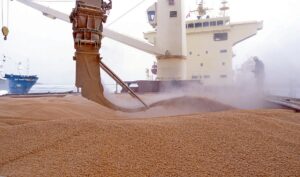
Grain in ports: Mykolaiv remains the busiest port in the new season
This season Ukraine is waiting for an almost record grain harvest, which will be the second largest in the entire history of Independence – after 2019. It is expected that in this regard, the volume of exports will also grow. Therefore, USM asked the question: is the desire to increase grain transshipment capacity justified, and how will this affect transshipment rates? What was the capacity of grain facilities 5 years ago and what is it now? What is the current reserve of transshipment capacity at deep-water terminals, will the plans to increase these capacities be justified in the near future?
